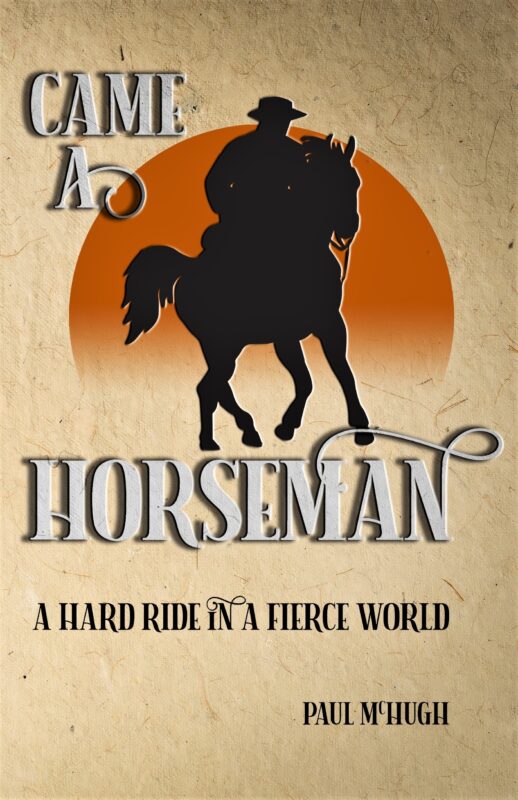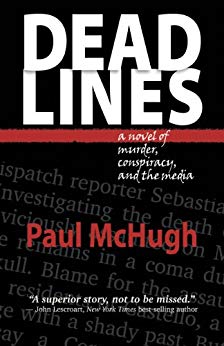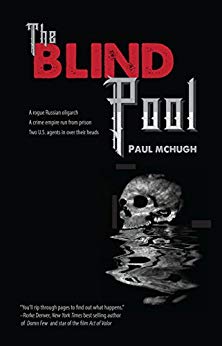
Long before I was ever able to plug a thumb drive into a laptop, I’d plug a pen into a notebook. And, late adopter that I am, I still do this, every single day. Computers certainly have their uses. Until or unless they go dark or haywire in some buggy or malware or ransom-ware fashion, that is.
But scribbling in a notebook is an irreplaceable, an unimprovable technology to me.

I got into it at age 14 by using with spiral-top pads that fit snugly into a shirt pocket, leaving just enough space to jam a slim Bic ballpoint down alongside it. Such a rig was the memory booster of its day. Even now, regular note-booking has much to recommend it.
I currently possess a bulging canvas satchel that holds a half-century of filled-up notebooks. For a writer, it’s a kind of treasure chest. Of the groovy, old-fashioned, pirate sort – brassbound, filled to its lid with gold doubloons, its surface strewn with random rubies and emeralds then garlanded by strings of glowing pearls.
Yesterday I tugged out a notebook from age 16 or 17. I could tell it was from that period due to the names of pretty girls (some of whom I even yet recall) and their phone numbers, all listed in a row on its back cover… though I was a Catholic seminarian aiming for a role as a priest at the time.
Those jotted contacts might suggest why I didn’t end up wearing a Roman collar.
Within this notebook, among its very first entries (a message from myself to myself) is a short quote from Blake: “As a man is, so he sees.”

A timeless bit of wisdom, as applicable now in the age of Trump as when I put pen to paper back then, and indeed as it was more than a century earlier, when a sly tyger named William Blake was penning “London”… amongst his many other remarkable missives to all the rest of us.
Also within this notebook lie many of my juvenile observations. Such as: “Marx was a fairly good social critic, but his replacement programs seem to me more than a bit improbable.”
I believe at that moment I intended to scribble a note about Karl, not Groucho. However, in either case, I think that sentiment holds up.
Here follows a few of the excellent uses of a full pocket notebook.
It’s a sort of intellectual diary, a pointillist portrait of your mind amid its formation.

It’s a collection of nuggets, bits of insight that can be pondered over, unfolded like origami in order to comprehend how your impression of comprehension was originally assembled.
It’s a mental gym wherein you build powers of observation and communication by lifting ever-heavier objects while increasing your repetitions.
Plus – and this is the real biggie – if you ever find yourself stuck anywhere without any stuff to read, you can pull that notebook out, unlock that good ol’ treasure trunk’s hasp and lift its lid. Voila! Instant stuff.
On any subsequent reading, you may pass judgment on whether an entry is worthwhile or not. Regardless of your verdict, I guarantee you shan’t be bored!
On one page in that notebook from my teens, I spot words that may constitute a title or topic or theme or suggestion of such ilk for a poem – one which I never got around to writing. Not yet, anyway. “The Mirror of Proteus.”
Next I see a fetal joke, in the style of a 50s ad slogan: “Anxiety, the neurosis everyone can afford!”
And there’s a scribbled comment after that, one that offers a hint about the sort of writer I’d try to become: “Ezra Pound has a remarkable versatility.”
Because to me, both then and now, Pound’s genius was amply demonstrated by the width of his spectrum, the breadth of his voice. He could do high sentence with an aplomb that would have suited any literary aphorist from a Raphaelite to a Victorian. Yet he could also do very low sentence, vernacular, street slang, modern or old, and maintain that tone ably throughout a piece. (Read, “Ballad of the Goodly Fere.” Next, “Sestina: Altaforte.” After you get past those, I’ll rest my case.)

Or to put the same thing another way. An aura of blue collar should always hover about your art. Other than his kings and lords and fools, Shakespeare offered us his simples and rustics. Often, their understandings exceeded those of the learned, potent and wise.
The trick of storytelling is that it’s all about modeling life. All of life, whenever possible.
Hence, your rainbow should go from rose to indigo.
As I look back now at my note about Ezra Pound, I realize that the philosophy implicit in his voice has guided my writing path ever since I jotted my original notion down. I never was a fan of Pound’s economic theories, nor his politics. Not even his view of history, however emphatically he presented it.
But am I a fan of his voice? Completely. Utterly. And sincerely.
I’d even call his last public statement an almost perfect valediction.
“I have erred tragically,” he said, shortly before his death.
Whew! Puttin’ it down, Ez.
That quote is also in one of my notebooks from way back when.
But what’s in ‘em now?
Funny you should ask.
Biggest change over this past half-century has been that my newest notebooks – Moleskines toted around via a black nylon manpurse, thank you so much – have become my project management tools.
I jot down all of those same sorts of notes that I used to take: random jokes, thoughts that feel exponentially philosophic or entertaining, quotes from other scriveners, astounding factoids of one stripe or another.
Yet most of my notebook entries these days are letter-coded bits for stories I’m actively engaged in seeking to tell. Snatches of dialog, descriptions of fraught situations and their solutions in plots, that sort of thing. For every increment there’s a different letter code, such as SPL or ODG.
After entering such integers in such fashion, I’m able to easily comb back through my notes, find and lift out any dose of inspiration that will drive a story onward. The process makes a notebook not only ancillary, but necessary.
And over the course of time, I’ve noted that my handwriting itself reveals a lot about how I’ve been feeling as I jot down an idea. Leaning back? Introverted. Leaning forward? Assertive. Jumbled? Hmmm…
Cursive writing has a funny name.
It’s amusing to think it derives from all those kids cursing as they’re compelled to learn to write in such a fashion.
Yet even that view in and of itself has become rather old hat.
Nowadays, kids utter curses while they’re simply attempting to read the material, not striving to write it. I know this since I’ve got quite hip and smart nieces and nephews who regard the cards I send them on birthdays and holidays and graduation occasions as intellectual puzzles not dissimilar to advanced games of Sudoku.
It’d be a waste of time to seek to explain that cursive writing was once the high-tech innovation which allowed scriveners of all sorts to speed up by keeping a pen upon a page instead of lifting it up at every letter to scrawl a message, to themselves or any others.
That no longer matters. It’s just a feature of an increasingly obsolete technology.
What matters is that each notebook of any sort can be for everyone what it’s been to me: a treasure chest brimful of messages from my prior selves to all my future selves.
And thus, I find them of interest.
And so, I recommend the practice.
Even if you have to write in block letters.
Or simply type text.
Even if you must do that with two thumbs, then save it to some sort of drive.
Put it all down. Or at the very least, your very best bits.
Then past, present, and future become more of a unified thing.
A thing that is useful, entertaining, and educational.
And so, have at it…









